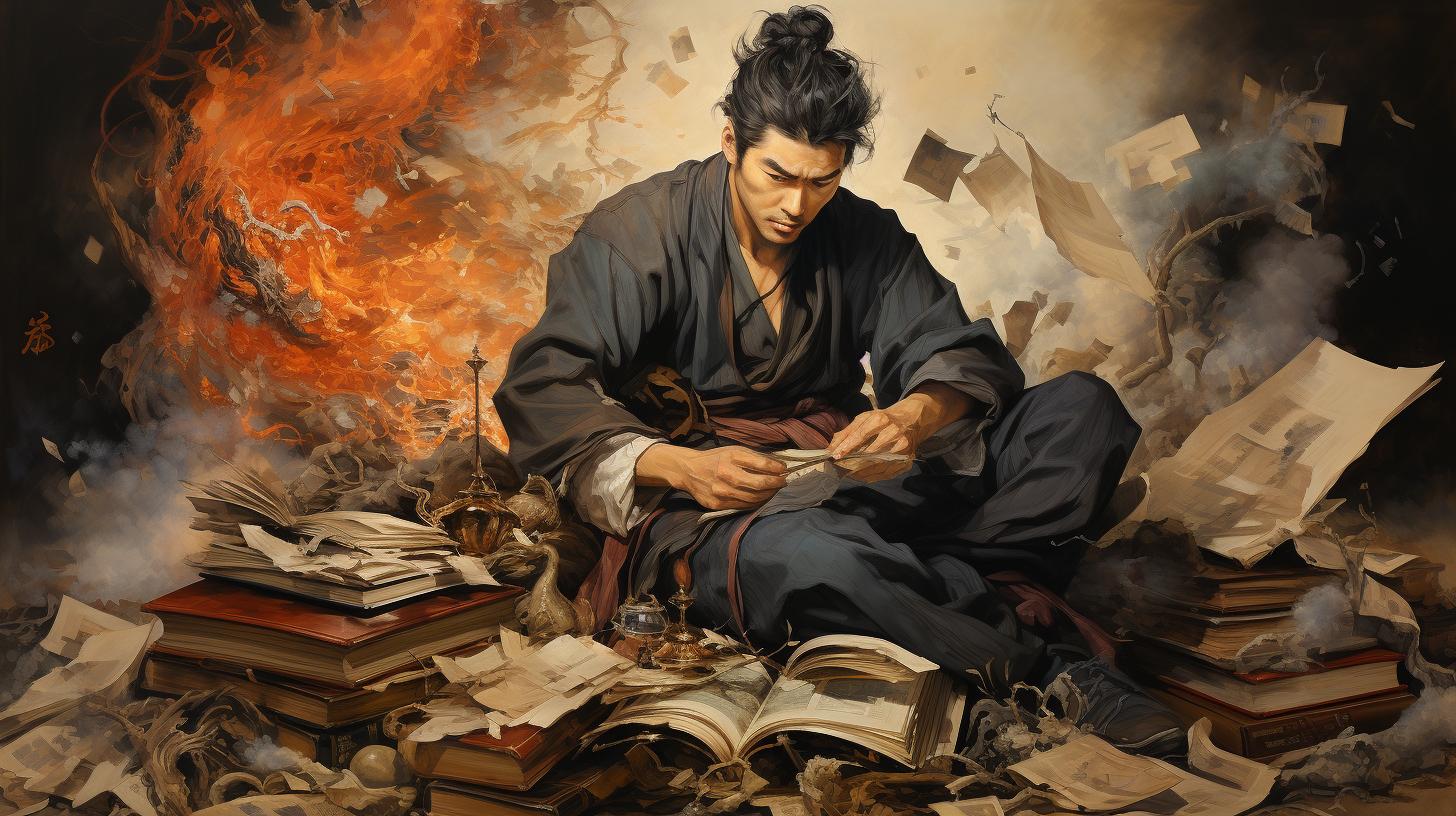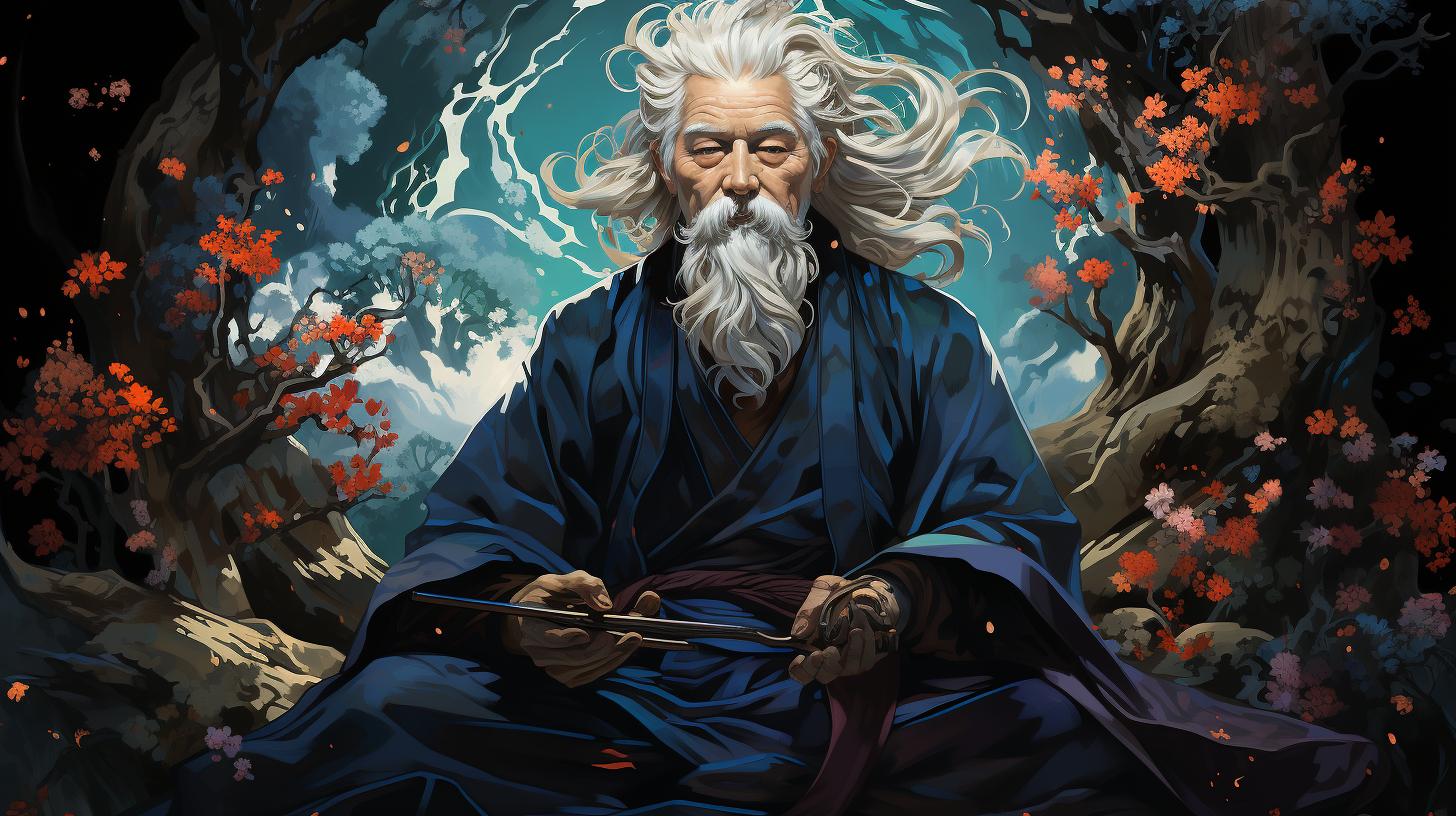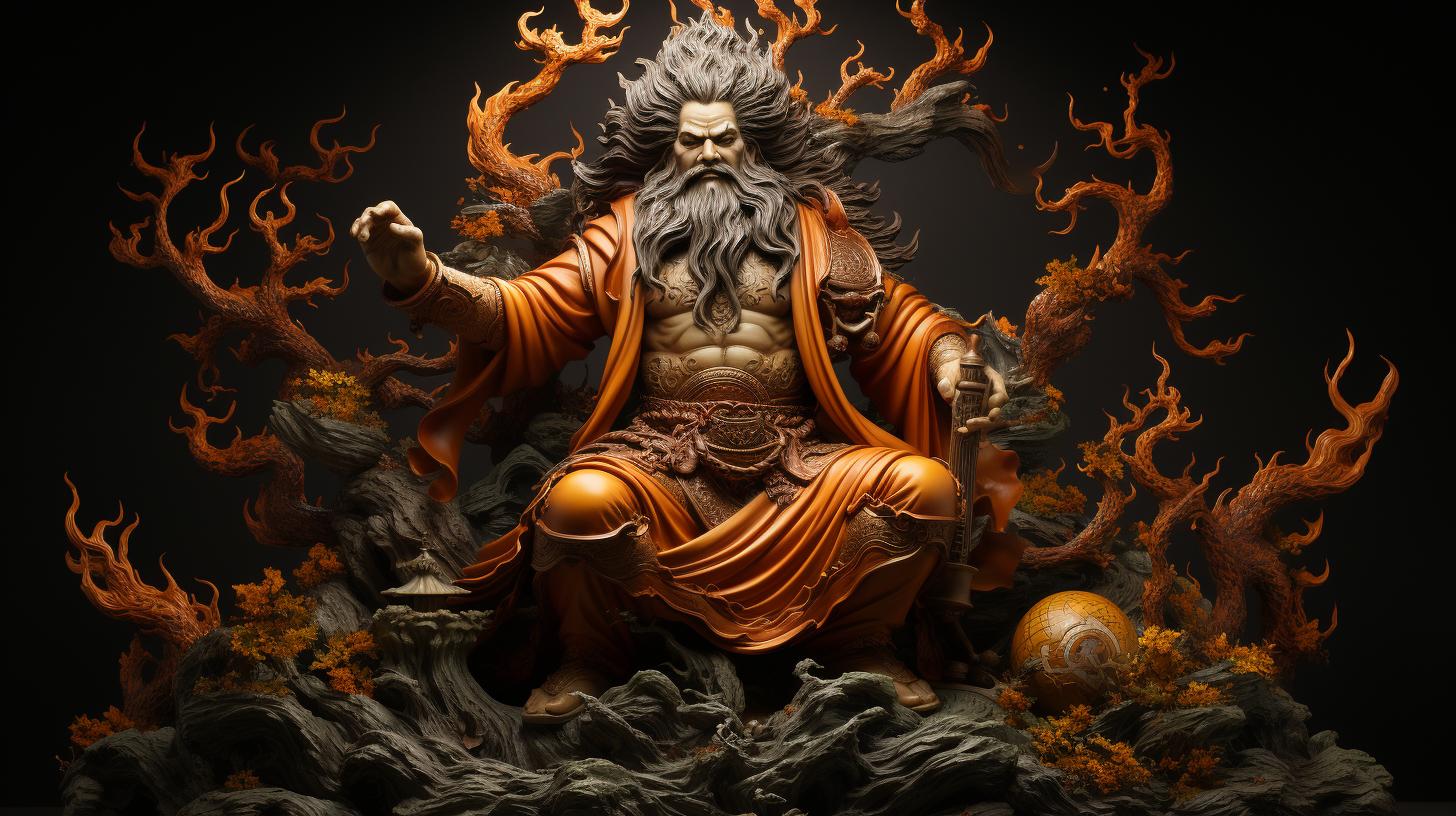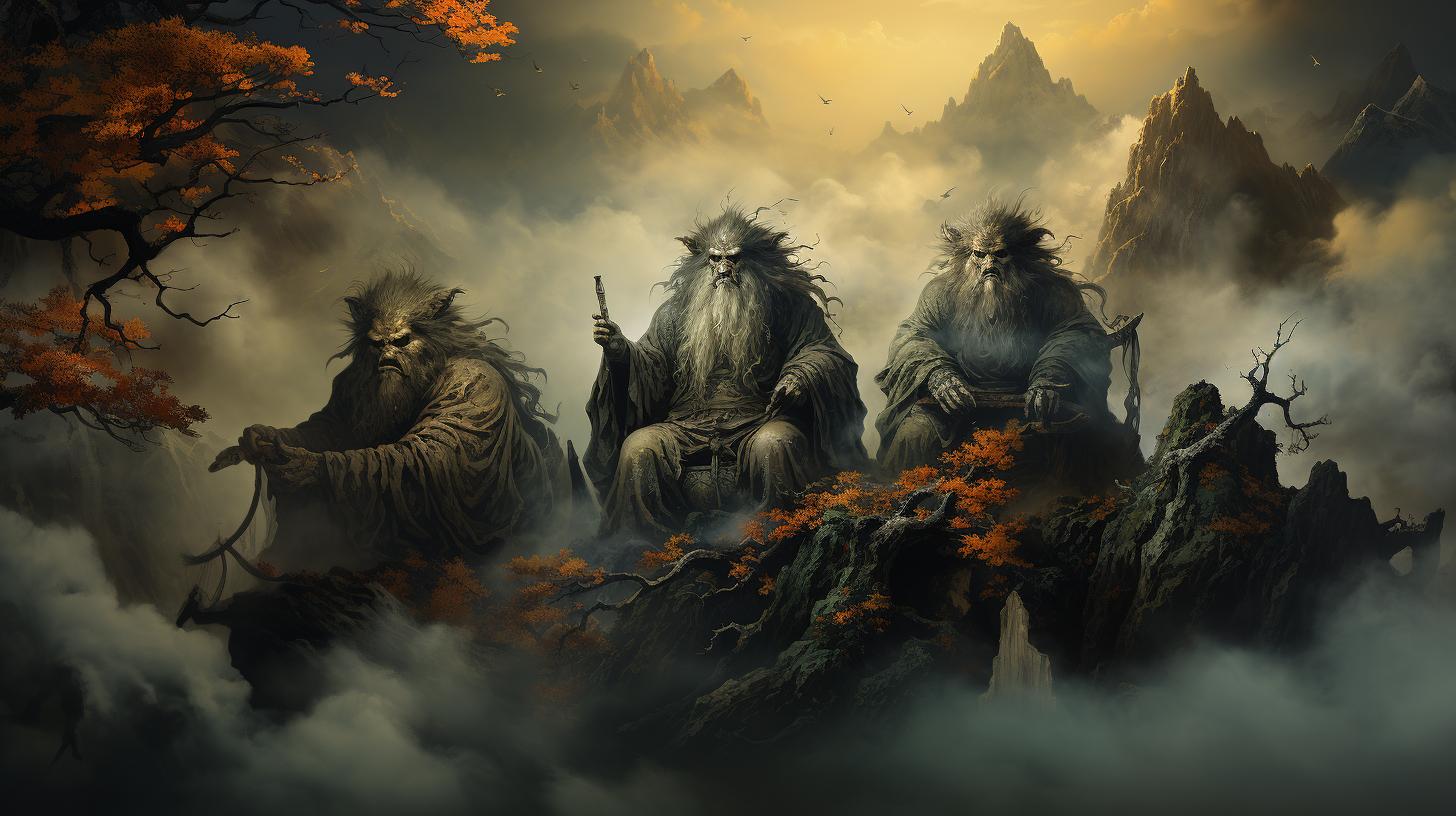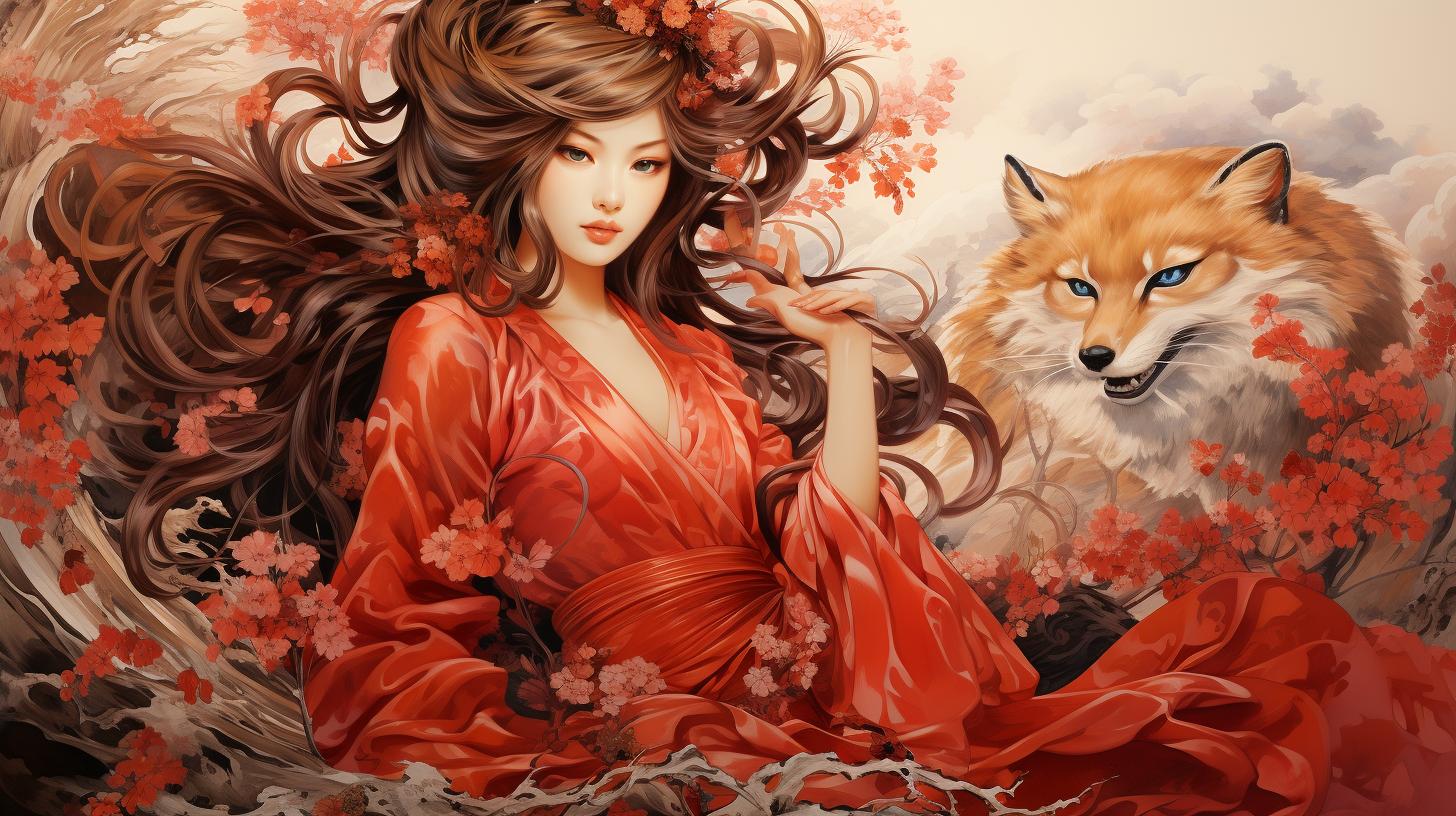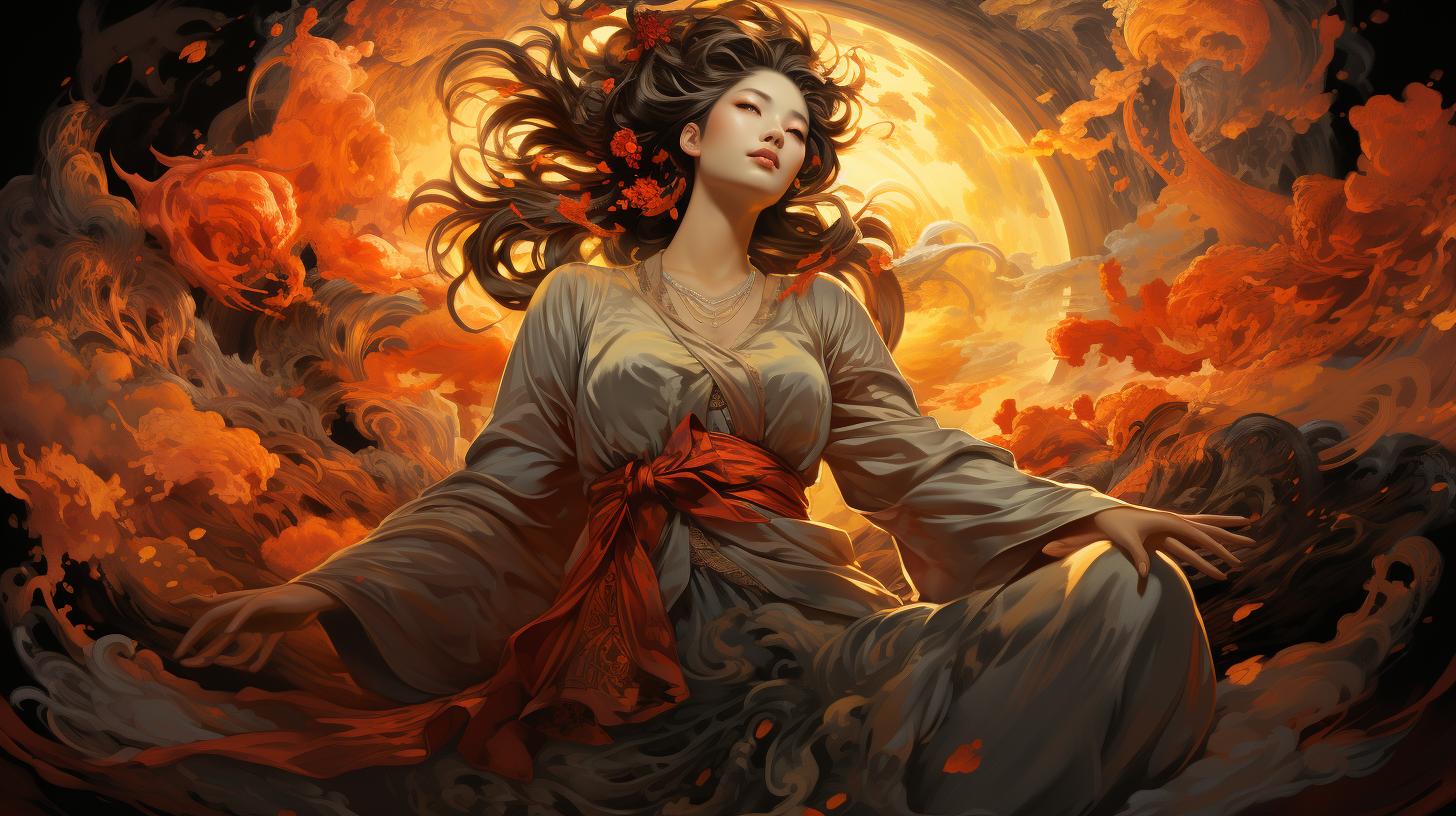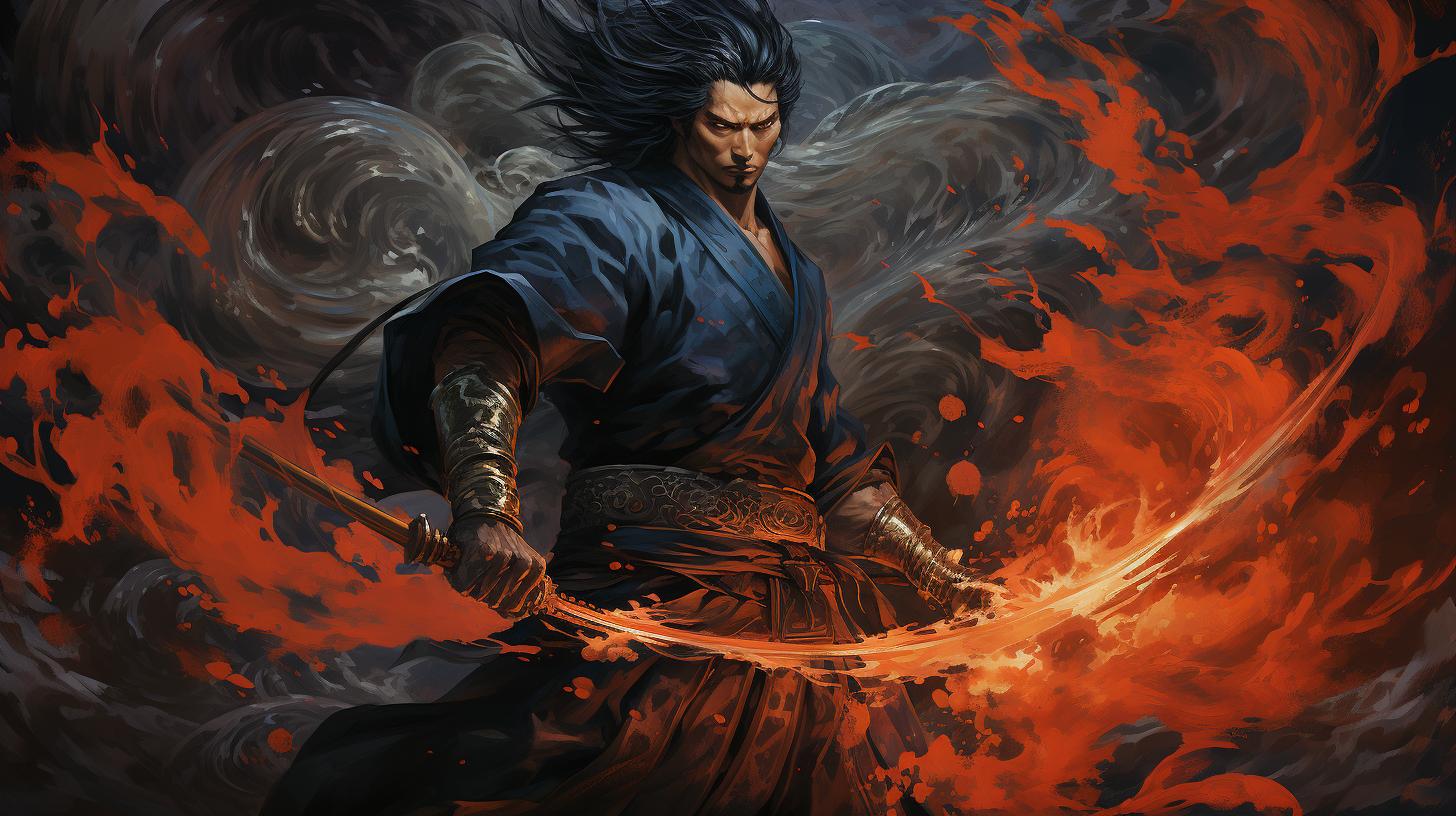Tenjin Japanese God: A Dive into the Shinto Deity of Wisdom
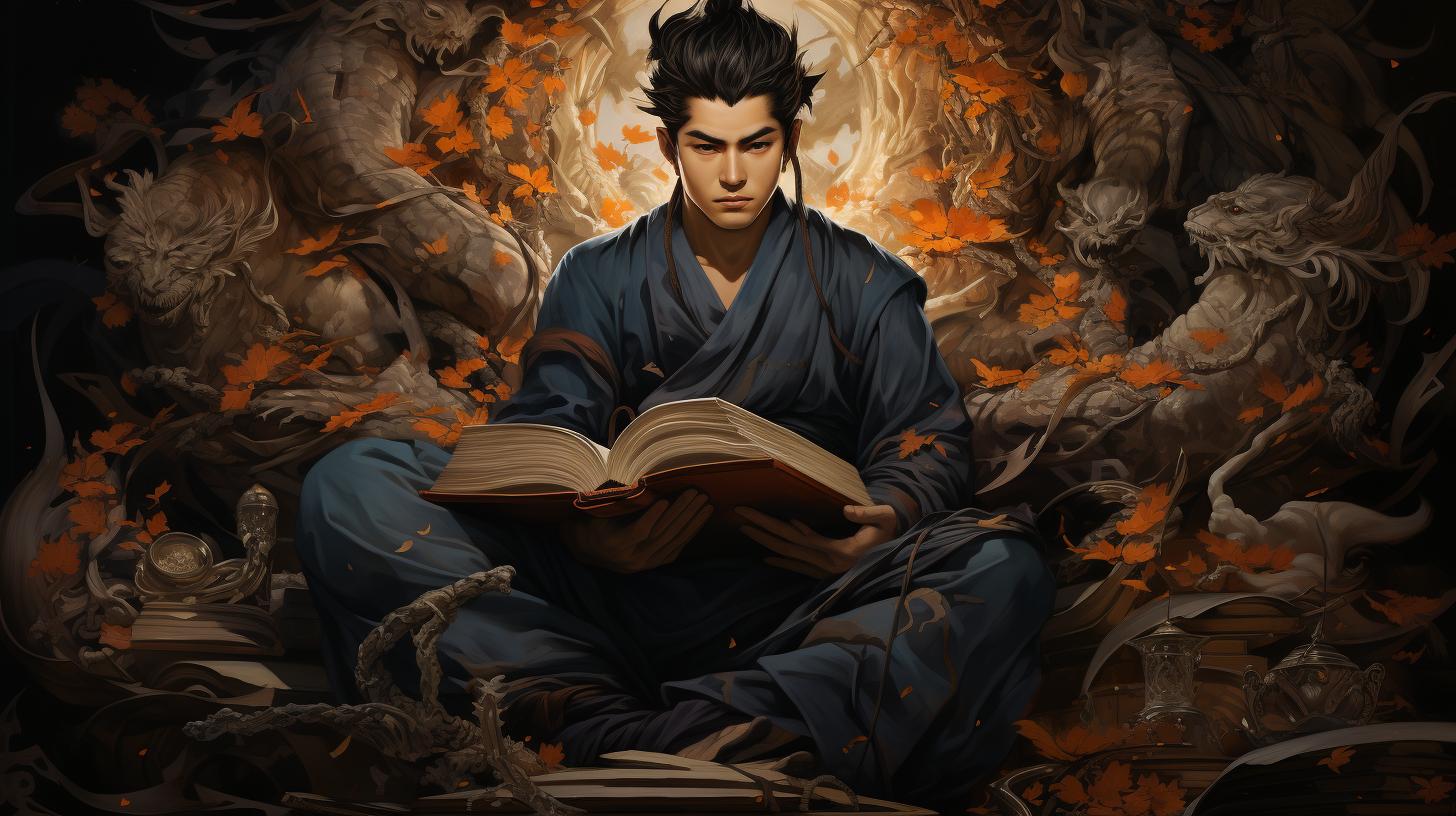
Tenjin Japanese god, also known as the deified Sugawara no Michizane, is a revered figure in Japanese culture. Falsely accused and exiled, Michizane’s spirit was pardoned and worshipped as the Shinto deity of wisdom.
Tenjin shrines were established to honor him. Tenjin’s significance extends to education and exams, with scholars and poets seeking his favor. Legends and myths surrounding Tenjin speak of miracles and symbols tied to his name.
Today, visitors can pay their respects at Tenjin shrines, observing customs and making offerings. Tenjin’s legacy lives on in contemporary worship and cultural expressions, including art and popular culture.
The History of Tenjin: From Exile to Deification
The history of Tenjin is a fascinating tale that begins with the accusations and exile of Michizane, a brilliant court official and scholar.
This historical figure, later venerated as the deity Tenjin, faced unjust accusations that led to his forced exile. Accused of political plotting, Michizane was stripped of his titles and banished from the capital.
Accusations and Exile of Michizane
Making his way to the Kyushu region, Michizane spent the remaining years of his life in exile, mourning the loss of his prestigious position and the life he once knew. Despite his misfortune, Michizane’s spirit remained steadfast, and he continued to write poems that depicted his sorrow and longing for justice.
His Spirit as the Deity Tenjin
Following Michizane’s death, miraculous events began to occur that were associated with him. It was believed that his vengeful spirit caused natural disasters in the capital, leading to his pardon and transformation into the revered deity, Tenjin.
Recognized as the Shinto god of wisdom, Tenjin became a figure to be worshiped and revered for his intellectual prowess and his ability to grant knowledge and success in scholarly endeavors.
The Establishment of Tenjin Shrines
The establishment of Tenjin shrines became the focal point of worship for the newly deified Michizane. These shrines were erected across Japan, serving as places for devotees to pay their respects and seek blessings.
Each shrine became a center for academic success, attracting scholars and students who sought Tenjin’s guidance and assistance.
- Tenjin shrines became essential aspects of local communities, acting as spiritual hubs for inspiration and wisdom.
- Devotees would visit the shrines to pray for success in examinations and academic pursuits.
- Tenjin’s influence within educational institutions grew, with schools dedicating small shrines or altars to honor the god of wisdom.
The establishment of Tenjin shrines solidified Michizane’s transformation into a revered deity and his lasting impact on Japanese culture, education, and tradition.
Tenjin in Japanese Culture and Tradition
The Tenjin Japanese god holds a significant role in Japanese culture and tradition. Let’s explore the various aspects that highlight the importance of Tenjin:
The Role of Tenjin as a Patron Deity
Tenjin is revered as a patron deity, particularly associated with scholars and academics.
It is believed that worshiping Tenjin can bring success in educational pursuits and intellectual endeavors. Students and scholars often visit Tenjin shrines to seek blessings and wisdom for their studies.
Tenjin Shrines and Their Importance
Throughout Japan, Tenjin shrines can be found, dedicated to the worship of this revered deity.
These shrines serve as places of spiritual significance and cultural heritage. They provide a serene environment for devotees to pay their respects, offer prayers, and immerse themselves in the aura of Tenjin’s wisdom.
Festivals and Ceremonies Dedicated to Tenjin
- Plum Blossom Festivals: Celebrated during early spring, these festivals honor Tenjin’s connection with plum blossoms and their symbolic representation of scholarly pursuits.
- Tenjin Matsuri: Held in various regions of Japan, Tenjin Matsuri is a grand festival dedicated to Tenjin.
It features vibrant parades, traditional music, dance performances, and fireworks, attracting visitors from far and wide.
- Michizane Festival: This annual festival commemorates Sugawara no Michizane’s life and achievements. It involves rituals, processions, and cultural performances, paying homage to Tenjin’s historical significance and wisdom.
These festivals and ceremonies provide opportunities for the community to come together, showcase traditional arts, and express their gratitude towards the divine presence of Tenjin.
Tenjin as the Shinto God of Wisdom
The Tenjin Japanese god holds a significant role as the Shinto deity of wisdom. Throughout Japanese culture and tradition, Tenjin is synonymous with knowledge and enlightenment. Let’s explore the various aspects of Tenjin’s connection to wisdom, education, and the admiration from scholars and poets.
The Connection between Knowledge and Tenjin
Tenjin embodies the essence of knowledge and learning, representing the pursuit of wisdom in Japanese society. This connection is deeply rooted in the belief that Tenjin’s spirit offers guidance and inspiration in academic endeavors.
Students, scholars, and intellectuals often seek Tenjin’s blessings and patronage for success in their studies and intellectual pursuits.
Tenjin’s Influence on Education and Exams
Tenjin’s influence expands to the realm of education and exams. In Japan, Tenjin is revered as a guardian deity of scholars and students. Many educational institutions, including schools and universities, establish Tenjin shrines within their premises to seek divine intervention for academic achievements.
It is not uncommon to witness students paying their respects and making offerings to Tenjin before examinations, wishing for wisdom and good fortune in their tests.
Tenjin’s Relationship with Scholars and Poets
Scholars and poets hold a special place in the realm of Tenjin’s reverence. Tenjin is known to have been a scholar himself during his mortal life, renowned for his literary talents and scholarly contributions.
As a result, Tenjin attracts the admiration and devotion of poets, writers, and intellectuals. Many renowned literary figures throughout history have composed poems and writings dedicated to Tenjin, acknowledging his influence on their creative endeavors and seeking his blessing for inspiration.
Legends and Myths Surrounding Tenjin
Legends and myths have woven a rich tapestry around Tenjin, the Japanese god of wisdom. These captivating stories depict Tenjin’s extraordinary powers and illuminate his revered status in Japanese folklore.
Tenjin’s Miracles and Powers
Tenjin is believed to possess miraculous abilities that shape the course of events.
It is said that he can influence the weather, heal illnesses, and bring good fortune to those who invoke his name. Countless tales narrate the wondrous miracles attributed to Tenjin, capturing the reverence and awe inspired by his supernatural capabilities.
Folklore and Stories Associated with Tenjin
A wide array of folklore and stories revolve around Tenjin, immersing the listeners in a world brimming with enchantment. These tales depict Tenjin’s life, his trials, and his ascendancy as a deity.
They often explore his interactions with humans, showcasing his compassion and wisdom. As the stories are passed down through generations, they continue to inspire and shape the cultural fabric of Japan.
Symbols and Representations of Tenjin
Tenjin is associated with several symbols and representations, each laden with profound meaning. The plum tree and the red and white plum blossoms are often linked to Tenjin, symbolizing his scholarly pursuits and literary achievements.
The ox, considered a divine messenger, is also associated with Tenjin, representing strength, wisdom, and perseverance. Images and artworks showcasing these symbols serve as a visual homage to Tenjin’s revered presence.
Visiting Tenjin Shrines and Paying Respects
When visiting Tenjin shrines, it is important to observe proper etiquette and customs to show respect to the deity and the sacred space. Here are some guidelines to follow:
Etiquette and Customs at Tenjin Shrines
- Dress modestly and remove your hat before entering the shrine.
- Wash your hands and mouth at the purification fountain near the entrance.
- Bow respectfully before stepping into the shrine building.
- Avoid talking loudly or behaving disrespectfully while inside the shrine.
- Do not take photographs unless it is explicitly allowed.
- Respect the privacy and tranquility of other visitors.
Prayers and Offerings to Tenjin
It is common practice to offer prayers and make offerings at Tenjin shrines to seek blessings and express gratitude.
Here are some rituals associated with prayers and offerings:
- Approach the main shrine and bow once to show respect.
- Throw a coin into the offering box as a symbolic gesture of donation.
- Clap your hands together to get the attention of the deity.
- Say your prayer silently or out loud, focusing on your wishes or gratitude.
- Bow again to conclude the prayer.
Seeking Blessings and Success from Tenjin
Many visitors come to Tenjin shrines to seek blessings for academic success, career advancement, and personal achievements.
Here are some ways to enhance your chances of receiving blessings:
- Offer a small wooden plaque known as ema, where you can write your wishes and hang it at the designated area in the shrine.
- Consider purchasing and carrying a omamori, a protective amulet associated with Tenjin, for good luck.
- Participate in rituals and ceremonies held at the shrine during special occasions or festivals.
- Take a moment to reflect and express your gratitude for any positive outcomes or achievements in your life.
Visiting Tenjin shrines provides a profound cultural and spiritual experience, allowing individuals to immerse themselves in the rich traditions and beliefs associated with the deity.
Tenjin Today: Contemporary Worship and Cultural Significance
Tenjin’s influence and reverence continue to thrive in modern times, as he holds a significant place in Japanese culture and society. Here, we explore the various aspects related to Tenjin’s contemporary worship and his enduring cultural significance.
Modern Practices and Beliefs Related to Tenjin
- Tenjin continues to be a revered deity in Japan, worshipped by individuals seeking wisdom, academic success, and artistic inspiration.
- Many students and scholars visit Tenjin shrines before exams, offering prayers and seeking guidance for their educational endeavors.
- Devotees also believe that by paying homage to Tenjin, they can enhance their knowledge, wisdom, and overall intellectual pursuits.
Tenjin in Popular Culture and Art
Tenjin’s presence extends beyond religious rituals and permeates various aspects of popular culture and artistic expression in Japan.
Here are some notable examples:
- Tenjin’s image often appears in traditional and contemporary art, including paintings, prints, and sculptures. Artists draw inspiration from his association with wisdom and scholarly pursuits.
- He is a popular subject in literature, particularly in poems and classic texts, which reflect his profound influence on Japanese literature and language.
- Tenjin’s portrayal in films and television shows further reinforces his cultural significance and familiarizes audiences with his story and attributes.
Preservation and Promotion of Tenjin’s Legacy
Efforts are made to preserve and promote the legacy of Tenjin, ensuring that his significance endures for future generations.
Some notable initiatives include:
- The maintenance and restoration of Tenjin shrines and their associated artifacts to preserve their historical and cultural value.
- Organizing festivals and events dedicated to Tenjin, allowing people to come together and celebrate his influence in various forms of artistic expression.
- The establishment of educational programs and scholarships inspired by Tenjin’s commitment to learning and academia.
- Publishing books, articles, and research papers that delve into the mythology, symbolism, and impact of Tenjin, further enriching the understanding of his cultural significance.
By embracing modern practices, showcasing his influence in popular culture, and preserving his legacy through dedicated efforts, Tenjin’s significance remains ever-present in contemporary Japanese society.
.

